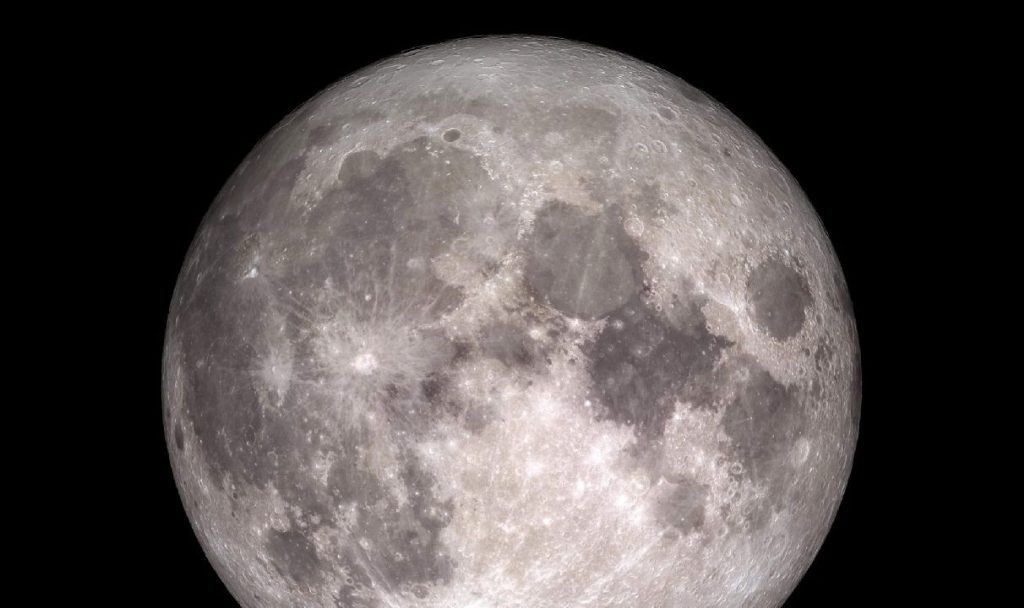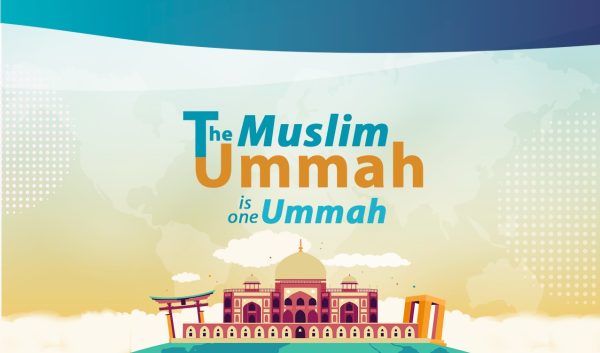
Globalization and its impact on Islam and Muslims:
Today we live in an increasingly globalized world where geographic distances or national boundaries can no longer deter the transmission of ideas, values, religious practices and cultural norms from one part of the globe to another. This has some very obvious benefits as well as drawbacks.
The revolution in modern day communication and transportation methods and an unhindered access to unlimited media platforms have on one hand facilitated many aspects of our daily lives yet on the other hand they have also resulted in deeply distorting and disfiguring our thought processes and our cultural, religious and moral values.
An illustration of the above-mentioned statement manifests itself in how Islam is practiced and preached by modern day Muslims. According to a 2017 research conducted by the PEW research center which is one of U.S’s leading think tanks, Islam is the fastest growing religion in the world and in the next five to six decades will most likely surpass Christianity as the largest religious group in the world.
While many demographic factors have contributed to this rapid growth, it is also a well-established fact that over the past 15-20 years the ever-increasing intensity of the globalization process has also facilitated the reversion of millions of non-Muslims into the blessed fold of Islam. Researching about Islam, its real message and interacting with Muslims and the many scholars and callers to Islam has been made vastly easier with ready access to online videos, lectures as well as the many authentic Islamic channels being run on international media platforms.
On the other hand, it must also be argued that as a result of the world becoming a global village, negative influences from foreign cultures have permeated into our communities and deviated the masses from the teachings of Islam. One such practice that has gained steady momentum in Muslim countries occurs on the 1st of January each year when rapturous celebrations mark the arrival of the Gregorian calendar’s New Year.
The Gregorian Calendar and its origins:
The Gregorian calendar which is a solar-based calendar, was introduced in 1582 by Pope Gregory XII and it replaced the highly inaccurate Julian calendar which was first implemented by Julius Caesar over 1600 years ago. ‘The Vatican’, which hosts the headquarters of the Roman catholic church was the birthplace of this calendar. This is the most widely used calendar in the world today, primarily because after it was introduced the emerging colonial powers of the time gradually adopted it as their ‘civil calendar’ and used it for civil, official and administrative purposes. Over a period of time and as their level of influence waned globally, the Muslim world also followed suit in implementing the Gregorian calendar and today only a few countries implement the Islamic calendar for official or administrative purposes.
The Hijri (Islamic) calendar and its origins:
The Islamic calendar, popularly known as the Hijri calendar, is a lunar calendar consisting of 12 months in a year of 354 or 355 days. It was introduced by Hazrat Umar Bin Al Khattab (رَضِيَ ٱللَّٰهُ عَنْهُ) after receiving reports from his officials that in the absence of a ‘yearly’ reference mentioned in the correspondence that he sent to them, it was difficult to ascertain which instructions were the latest. Also, Hazrat Umar (رَضِيَ ٱللَّٰهُ عَنْهُ) sensed that it was essential to introduce an Islamic calendar and rationalize the many multiple, often conflicting dating systems in place at the time. The first day of the first month of the Islamic calendar (1 Muharram 1 AH) was set to the first new moon after the day the Prophet ﷺ emigrated from Makkah to Madina. Therefore, due to this bond that every Muslim has with the special event of the migration of our beloved Prophet ﷺ, the Hijri calendar carries a very unique spiritual significance.
For Muslims, using the Hijri calendar in their daily lives is the most preferable thing to do given the fact that the Hijri year includes within it the lunar months which Allah (عَزَّوَجَلَّ) has made as a tool to not only measure time for the people but to also ascertain the arrival of hajj, fasting and the four sacred months. In the Holy Quran, Allah (عَزَّوَجَلَّ) says:
يَسْأَلُونَكَ عَنِ الْأَهِلَّةِ ۖ قُلْ هِيَ مَوَاقِيتُ لِلنَّاسِ وَالْحَجِّ
They ask you, [O Muhammad], about the new moons. Say, “They are measurements of time for the people and for Hajj.”
[Al-Baqara : 189]
Moreover, Allah (عَزَّوَجَلَّ) says (what means): {Indeed, the number of months with Allah (عَزَّوَجَلَّ) is twelve [lunar] months in the register of Allah (عَزَّوَجَلَّ) [from] the day He created the heavens and the earth; of these, four are sacred. That is the correct religion.} [Qur’an 9:36] Also, the Prophet ﷺ said:
”The year is twelve months, four of which are sacred, three are consecutive: Thul-Qi’dah, Thul-Hijjah and Muharram, and the fourth one is Rajab of Mudhar, that comes between Jumaadah and Shaa’baan.”
(Sahih Bukhari)
What do the Islamic scholars say?
Islamic scholars do not explicitly prohibit the usage of Gregorian calendars as in the modern day and age businesses as well as public and private offices in the Muslim world have to communicate with their non-Muslim counterparts and hence the usage of a common ‘civil’ calendar is the convenient way out. Having said that they insist that we must not limit ourselves only to the usage of the Gregorian calendar and also concurrently run our vastly superior Hijri calendar as a means to mark occasions and festivities. Similarly, the Hijri calendar also holds a much deeper religious meaning as all the historical events in Islamic history are dated in the Islamic calendar and serve as a reminder to us about the sacrifices made by our noble predecessors in the way of Islam.
Analyzing the New Year celebrations:
In the context of the above discussion it is evident that the Islamic perspective on calendar usage is pretty clear. Yet by analyzing the related issue of the increasingly lavish new year celebrations amongst the Muslim masses many glaring anomalies come to the fore. Firstly, its vital to clarify that Islam does not even encourage engaging in any specific festivities to mark the arrival of the Islamic New Year on the 1st of Muharram let alone participating in the celebrations of the non-Muslims. Secondly, spending hundreds of millions of dollars across the Islamic world in organizing extravagant fireworks displays is not economically viable when that money could be spent to alleviate rampant poverty and destitution in our communities.
Thirdly, a year gone by in our lives is not an occasion to celebrate rather it must serve as a means for reflection and thankfulness. We must reflect and reminisce about making our remaining time left on this earth effective and meaningful and we must also be thankful to our creator for provisioning us with an additional year of worldly existence infused with the abundant gifts of health, prosperity and well-being. Fourthly, we must be sensitive and realize that this is a celebration that is cut off from the reality facing the Ummah today. There is mass starvation in Yemen and Somalia, systematic genocide in Syria and Burma, pellet gun carnage in occupied Kashmir, the suffocating imprisonment inflicted upon the people of Gaza and the continuing occupation of Bayt-Al Maqdis. Lastly and most importantly, by joining in these celebrations we are imitating the disbelievers and according to a hadith the Messenger of Allah (عَزَّوَجَلَّ) ﷺ said:
“Whoever imitates a people is one of them.”
(Narrated by Abu Dawood:3512).
This does not mean that Islam forbids celebrating elements of happiness in one’s personal life, smiling infact is the sunnah of the Messenger ﷺ and in one hadith He ﷺ said:
“Your smile for your brother is charity”
(Sunan At-Tirmidhi:1879)
Rather, what we mean in the context is to be generally aware of the circumstances that have enveloped us as an ummah due to our own weaknesses and as a result of deviating away from the core of our religion’s pristine teachings. The elements of productivity, creativity, vigor, valor, thoughtfulness, selflessness and devotion that transformed the fortunes of our pious predecessors have gone amiss from our daily lives and instead we have been consumed by the vagueness of senseless celebratory antics, selfishness, idleness and lethargy.
In conclusion:
The purpose of this article is not to promote despondency and despair, rather it aims to serve as a brief reminder that our challenging circumstances demand a greater sense of responsibility and self-evaluation and for us to work on maximizing our productivity rather than wasting our efforts in vain activities. Islam is a religion of optimism and hope, Allah (عَزَّوَجَلَّ) says in the Holy Quran:
“So do not become weak (against your enemy), nor be sad, and you will be superior (in victory) if you are indeed (true) believers.”
(Surah Al-i-Imran : 139)
Part and parcel of being superior and victorious as mentioned in this verse is by sticking to the basics of our religion and adhering to the sense of morality and purposeful existence it promotes. Allah (عَزَّوَجَلَّ) also states in the Holy Qur’an:
“Did you think that We had created you in play (without any purpose), and that you would not be brought back to Us?”
(Surah Al-Mu’minun : 115)
We pray that Allah (عَزَّوَجَلَّ) guide us and our youth in the Muslim world towards what is most pleasing to Him and that He protects us, our communities and the wider ummah from engaging in any sort of lewd, un-Islamic or indecent activity that may result in His anger and wrath to envelope us and lead us astray from His infinite guidance and mercy.(Aameen).










